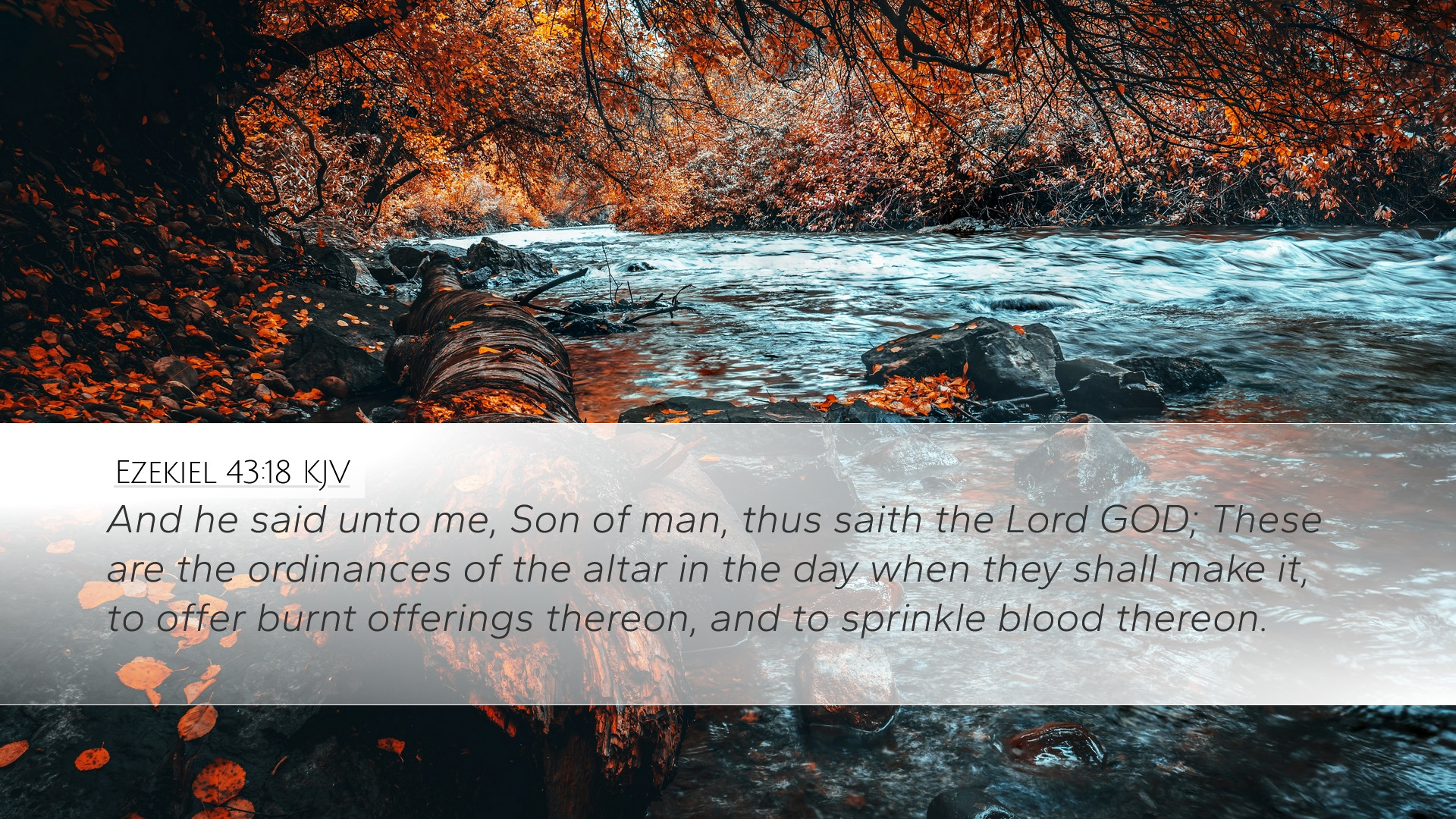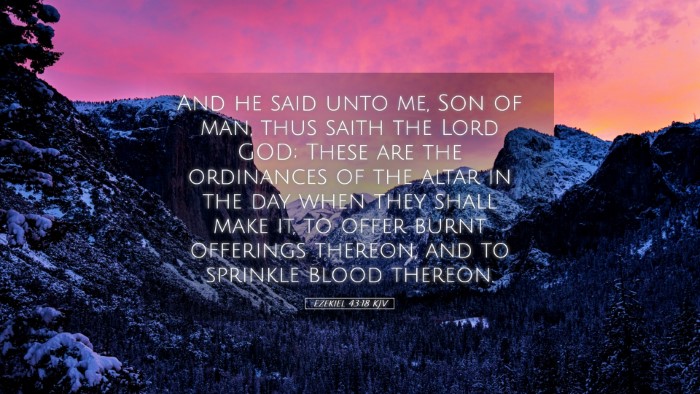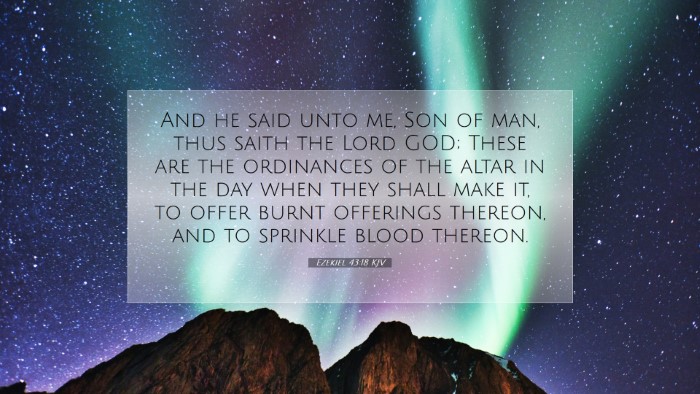Ezekiel 43:18 Commentary
Verse: "And he said unto me, Son of man, thus saith the Lord God; These are the ordinances of the altar in the day when they shall make it, to offer burnt offerings thereon, and to sprinkle blood thereon." (Ezekiel 43:18)
Introduction
The passage of Ezekiel 43:18 serves as a critical juncture in Ezekiel's vision of the restored temple and the worship practices associated with it. This verse introduces the divine instructions concerning the altar, emphasizing the significance of the altar in the sacrificial system established by God. It invites deep theological reflection on the nature of sacrifice, the holiness of worship, and God's covenantal relationship with His people.
The Nature of the Altar
The Altars of Sacrifice: Albert Barnes indicates that the altar serves both a literal and a symbolic function. It is the place of atonement, where sacrifices are offered to God. The altar's ordinations are integral to understanding how God desires to be worshipped. Matthew Henry elaborates on this further, suggesting that the altar represents not only the means of atonement but also the covenantal bond established through the blood of sacrifices.
Divine Institutions
God's Direct Instructions: The phrase "thus saith the Lord God" underscores the divine authority behind the instructions given to Ezekiel. Adam Clarke notes that these ordinances are set forth with meticulous detail, revealing the seriousness with which God regards worship. Each aspect of the ritual holds significant theological weight, symbolizing the restoration and redirection of Israel’s heart towards true worship after a period of exile and disobedience.
The Purpose of the Sacrifices
Burnt Offerings and Atonement: The mention of burnt offerings is particularly poignant. According to Clarke, burnt offerings were a form of total consecration to God, signifying the worshipper’s full devotion and the need for atonement. This reflects God's desire for an authentic relationship with His people, one built on reverence, obedience, and sacrifice.
The Role of Blood in Worship
Blood as a Symbol of Life: The act of sprinkling blood is a vital component of the sacrifice. Barnes explains that blood symbolizes life and is integral in the atonement process. The sprinkling of blood upon the altar signifies the covering of the people’s sins and the acceptance of their worship by God. This method of worship is not merely a ritual; it conveys deep spiritual truths about sin, mortality, and the necessity of sacrifice for reconciliation with God.
The Significance for the People of God
Restoration of Worship: The context of these instructions points to the restoration of true worship post-exile. Henry emphasizes that this return to proper sacrificial practices indicates God's readiness to forgive and restore His people. It is a call for Israel to renew their commitment to Him, outlining how they ought to approach Him in worship. The improper worship prior to the exile serves as a cautionary tale, reminding the faithful of God's holiness and the importance of adhering to His prescribed ways.
Theological Implications
Covenantal Reminders: This passage serves as a reminder of the covenant between God and His people. Clarke discusses the implications of maintaining these ordinances as a means to remind Israel of their identity as God’s chosen. It is also an invitation to reflect on the New Covenant established through Christ, who fulfills and transcends the sacrificial system. This link brings the Old Testament practices into dialogue with the New Testament understanding of sacrifice, highlighting the continuity of God's redemptive plan.
The Call for Obedience
Application for the Faithful: The command to observe these ordinances goes beyond mere ritual; it demands heartfelt obedience. Pastors and theologians must recognize this as a template for understanding the importance of obedient worship in the life of a believer. Matthew Henry points out that true worship is marked not just by external compliance but by internal submission to God's will.
Conclusion
Ezekiel 43:18 encapsulates essential truths about divine worship, sacrifice, and the nature of God’s relationship with His people. By examining the significance of ordained practices surrounding the altar, we uncover a deeper understanding of how God calls His people to worship Him in spirit and in truth. This passage remains a critical reflection for pastors, students, and scholars, inviting continual exploration of how such ancient practices inform and enrich modern faith practices.
References
- Henry, M.: Commentary on the Whole Bible.
- Barnes, A.: Notes on the Old Testament.
- Clarke, A.: The Holy Bible with a Commentary and Critical Notes.


